Kenneth Atchity's Blog, page 179
October 10, 2014
Guest Post: My grandson just uttered his first word, and it's not what we expected by Jerry Amernic

My daughter has a one-year-old. His name is William, he’s a cute little guy and we all love him to death.
He has dimples in his cheeks when he gives us his four-tooth smile (two uppers, two lowers). The week after his birthday he did two things for the first time: He walked by himself, and it was something to behold – a cross between Frankenstein and Jimmy Cagney – and the other thing he did was utter a word, but it wasn’t Mama or Dada.
Here’s the story. In our dining room we have this pendulum wall clock, and every time it gongs, William takes note. If he is visiting us at noon and hears 12 gongs, he sits up, completely mesmerized, with his mouth ajar, until the string runs out. He doesn’t even blink. If he’s in his high chair in the kitchen and we ask, “Where is the clock?” he knows where to look and sometimes he points to it.
The other day he finally said it. Clock. It was his first word, only he didn’t quite capture the consonant blend, and so, it came out minus the “l”. Kapeesh?
Now, of course, he’s saying it all the time and my daughter, his mom, is beside herself. She has a book where she records such things as his height and weight at birth, when his first tooth appeared, and his first word. But she is still leaving that one blank.
I am sure he says it when she’s out shopping with him at the grocery store. Or when they visit the other grandparents. Or when they have friends over to the house. It must be embarrassing.
I play old-timers hockey with the guys. The thing about men’s hockey leagues is that when you’re in your 20s and 30s, dressing-room talk is always about women – wives, girlfriends, barmaids. In your 40s, it’s about family and kids. In your 50s, colonoscopies and other bodily issues are the rage, so any opportunity to inject humour into the proceedings is welcome.
When we were getting dressed for a game the other night, the guy next to me, a big defenceman who happens to be a police officer, announced that he just became a grandfather. After offering congrats, I mentioned this little story about my grandson.
Bob – that’s his name – said it’s a good thing William’s initial foray into language didn’t refer to the female anatomy.
Could you imagine? It got me thinking. Can a one-year-old be charged with creating a public disturbance?
I should ask Bob, he’s a cop. But no. I’m sure that a little kid can’t be charged with anything. But the adult who’s running the show certainly can, and that goes for mothers, fathers and grandfathers.
Since I’m the one who got him interested in that wall clock by making a fuss whenever it gonged, I feel responsible, and now it’s obvious that I created a monster.
Because of me, William says “clock” (minus the “l”) when you shove your watch in his kisser.
Because of me, he says “clock” (minus the “l”) when you put him down to play with that Fisher-Price toy that has the round face with the big hand and little hand on it.
Because of me, he says “clock” (minus the “l”) whenever he sees any kind of clock at all.
On his last visit to the house I spent a lot of time with him. We were both looking at his parents’ wedding portrait hanging in the hallway.
“Mama,” I said over and over, pointing to my daughter.
“Dada,” I said, pointing to my son-in-law.
Mama. Dada. Mama. Dada.
Nothing. Not even a glimmer of recognition.
Just then the pendulum wall clock in the dining room issued a single gong, signifying arrival of the half-hour.
“C[l]ock!” William said out loud, turning to the sound. It was as clear as the proverbial bell.
Satisfied, he smiled from cheek to cheek, dimples and all.
I was toast.
Orginally Posted on The Globe and Mail

Published on October 10, 2014 00:00
October 9, 2014
Five Star Review for R. Lee Walsh's Irin on Reader's Favorite


Reviewed by Lit Amri for Readers' Favorite
R. Lee Walsh's fantasy novella, Irin: The Last Scribe, is about an ancient race of supernatural beings known as Irin. They don’t age, get sick or wounded like normal humans do. They walk freely in society, easily overlooked as someone unimportant. They protect the world against those who intend to corrupt and terrorize humankind’s existence. In Irin: The Last Scribe Prequels Book 1, we meet Riley Storm, an Irin enforcer who is seeking his missing partner. His search brings him to Los Angeles, where he discovers a disturbing secret behind the city's most violent criminals.
Irin is a novella that easily rivals a lengthy novel. It is less than 70 pages, yet the back story is enough for readers to familiarize themselves with the ethereal existence of the Irin race, particularly Riley Storm and Peach. It is captivating right from the beginning – it only took two pages for the story to fully hook my interest, and I easily immersed myself in every vividly written scene. The challenge of writing a fantasy fiction is getting the readers to understand the concept of the story, its world and be fascinated by its ethereal characters. I personally think that Walsh nails this prerequisite element of the genre.
On the whole, The Last Scribe is definitely a series that fantasy fans would love to follow. It is fascinating, action-packed and very readable. The plot is original and has substantial depth. Walsh’s talent as a writer is definitely a laudable one. I would certainly keep a lookout for her next work.

Published on October 09, 2014 15:21
September 26, 2014
"Exciting twists in this thriller will keep readers guessing until the surprising conclusion."
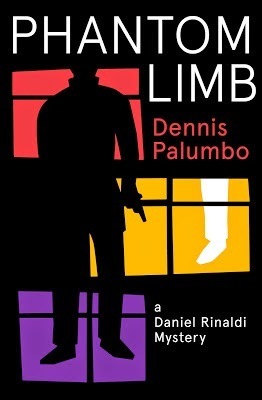
Reviewed by Tanzey Cutter
As a Pittsburgh Police Department consultant, clinical psychologist Daniel Rinaldi has been involved in solving several murder investigations, but his favorite job is helping victims deal with the aftermath of violent crimes. He's intrigued by his newest patient, Lisa Harland, ex- Hollywood starlet who's returned to Pittsburgh and married a much-older business mogul; a callous, controlling man. Lisa informs Rinaldi that she's planning to kill herself and he has 50 minutes to talk her out of it. Having accomplished that goal during their session, Rinaldi is shocked when Lisa is abducted and he's knocked unconscious as she leaves his office.
Rinaldi now finds himself part of another police investigation, to the chagrin of several of the detectives, but Lisa's husband insists Rinaldi play an active part in getting his wife back. When the ransom call comes from the kidnappers, they demand that Rinaldi make the delivery -- with no cops involved. It's too late to fulfil that final ultimatum, since the police were called in immediately after Lisa was taken. Of course, things go all wrong during the ransom drop, and thus begins an elaborate and lethal succession of events that will prove fatal for some of those involved. The further the investigation proceeds, the more questions arise about who's involved and why. The answers will be shocking.
PHANTOM LIMB, Dennis Palumbo's fourth exciting Daniel Rinaldi mystery/thriller, moves along at a rapid pace with a distinctive blend of characters strengthening a plot filled with many surprising twists and turns. At the end, Rinaldi is given some shocking, new information about the death of his wife, which should make for an interesting book in the future.
SUMMARY
Psychologist and Pittsburgh Police Department consultant Daniel Rinaldi has a new patient. Lisa Harland, a local girl, once made a splash in Playboy and the dubious side of Hollywood before bottoming out. Back home, down and out again, she married one of the city's richest and most ruthless tycoons. Lisa's challenge to Danny is that she intends to commit suicide by 7:00 PM. His therapist skills may buy some time — but, exiting, she's kidnapped right outside his office.
Summoned to the Harland estate, Danny is forced, through a bizarre sequence of events, to be the bag man on the ransom delivery. This draws him into a deadly cat-and-mouse game with a brilliant, lethal adversary. Complicating things is the unhappy Harland family, whose members have dark secrets of their own along with suspect loyalties, as well as one of Danny's other patients, a volatile vet whose life may, like Lisa's, be at risk. What is really at stake here?
PHANTOM LIMB, fourth in the acclaimed series of Daniel Rinaldi thrillers, will keep readers guessing until the very last page.
Reposted from Fresh Fiction

Published on September 26, 2014 00:00
UBAD Writers & Readers Festival October 1-5, 2014
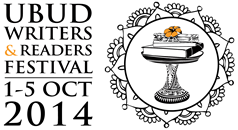

We are delighted to share with you the full program for Ubud Writers & Readers Festival, October 1-5, 2014.
With over 150 writers from more than 25 countries it’s truly a celebration of global issues, big ideas and extraordinary stories. This year’s theme, Saraswati: Wisdom & Knowledge is an exploration of the wisdom to be gained by creative expression.
A number of the Festival’s writers are no strangers to prizes – such as Hassan Blasim (Independent Foreign Fiction Prize); Eimear McBride (Baileys Women’s Prize) and Cyrus Mistry (2014 DSC Prize) – to name a recent few.
Queen of Crime and creator of much-loved series Wire in the Blood, Val McDermid will be jetting over from Scotland, while master novelist Amitav Ghosh joins us along with Pulitzer Prize-finalist Deborah Baker (they’ll also lead an exclusive post-Festival Komodo Islands cruise).
With wandering in their blood, the program features British travel writing great Colin Thubron ; memoirist Robyn Davidson ; Tim Cope ; and Carl Hoffman .
Rayya Elias , Kate Holden and poet Kosal Khiev are all survivors of different stripes, while star of Spike Lee’s Inside Man, Carlos Andrés Gómez is also an acclaimed spoken-word poet and writer.
Leading the vanguard for avant-garde Asian fiction is Chinese writer Can Xue and Japanese novelist Minae Mizumura , while ex-pat Malaysian Tash Aw continues to delight us.
From Indonesia the Festival has invited publishing pioneer Goenawan Mohamad , intellectual Azyumardi Azra , art patron Agung Rai and Festival favourites Debra Yatim , Ahmad Fuadi and Ketut Yuliarsa. ‘Truman Capote with a machete’ Made Wijaya joins the line-up, as does How to act Indonesian YouTube hit sensation Sacha Stevenson , plus many more.
Ardent human rights activists and social commentators are plenty, from one-time UN Representative in Sudan Mukesh Kapila , to frontline journalist Pallavi Aiyar , author of TheWisdom of Whores and Indonesia etc. Elizabeth Pisani , and Polish editor and journalist Adam Michnik . On the environmental front we have Keibo Oiwa , Nadya Hutagalung , Willie Smits and more.
In addition to our Main Program and Special Events, we’ve added exciting extras: Yoga; Digital Dialogues; Surf; plus of course Environment Day and The Kitchen. We hope you enjoy exploring.
With literary lunches, workshops, in-depth conversations,children’s and youth events, twilight performances, film screenings, poetry slams, cultural masterclasses, art exhibitions, book launches and more, be sure not to miss this world class event set in Bali’s cultural heartland.
Full program HERE.
Purchase your Festival Passes HERE.
Please note: Sir VS Naipaul will unfortunately no longer be joining the 2014 line-up. More information here.

Published on September 26, 2014 00:00
September 24, 2014
Mystery writer Palumbo keeps his voice set in Western Pa.
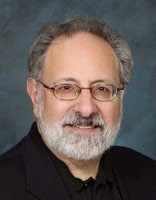 In Dennis Palumbo's new novel, “Phantom Limb” (Poisoned Pen Press), a character walks into a therapist's office and puts forth the following scenario: “I plan to kill myself at 7 o'clock tonight. Which means you have 50 minutes to talk me out of it.”
In Dennis Palumbo's new novel, “Phantom Limb” (Poisoned Pen Press), a character walks into a therapist's office and puts forth the following scenario: “I plan to kill myself at 7 o'clock tonight. Which means you have 50 minutes to talk me out of it.”It sounds like a line from a television show or movie, especially given Palumbo's background as a screenwriter for both mediums. But the origin of the scene was not at all pleasant for Palumbo, who is a licensed psychotherapist.
“It would be (comical),” Palumbo says. “Except it happened to me. ... I had been a therapist for about a minute and a half, and a woman came in, who was about 55, and said, ‘I have the pills at home and I'm going to kill myself at 7 p.m. You have 50 minutes to talk me out of it.' ”
“If you can get them to come back, you've got a pretty good shot,” he says.
Palumbo, a native of Penn Hills, has lived in the greater Los Angeles area for 40 years. A graduate of the University of Pittsburgh, he was a staff writer for the sitcom “Welcome Back, Kotter” and wrote the screenplay for the film “My Favorite Year.” “Phantom Limb” is his fourth crime novel featuring Daniel Rinaldi, a psychologist based in Pittsburgh.
The title refers to the sensation that a missing arm, leg or other appendage is still attached to a body. That theme
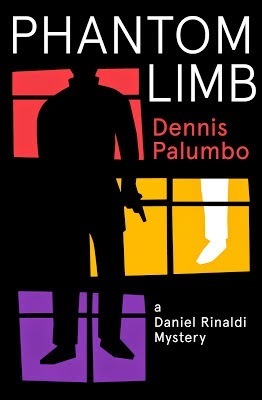 is woven into a book about one of Rinaldi's patients, a former Playboy model and actress who is the wife of a rich businessman. When she's kidnapped after an appointment with the psychologist (she's the character who threatens to kill herself), Rinaldi becomes inextricably involved in solving the crime.
is woven into a book about one of Rinaldi's patients, a former Playboy model and actress who is the wife of a rich businessman. When she's kidnapped after an appointment with the psychologist (she's the character who threatens to kill herself), Rinaldi becomes inextricably involved in solving the crime.While Palumbo shares his character's Italian heritage, Pittsburgh background and occupation, he's admits Rinaldi can do things — such as solve crimes — beyond his scope of experience.
“But his point of view about therapy and the mental-health system comes from me,” Palumbo says. “One of the real treats about writing this series is I get to talk about the things I love, like the mental-health industry and Pittsburgh.”
Pittsburgh's prominent role in “Phantom Limb” and the rest of Palumbo's books might seem odd, given that he's not lived in Western Pennsylvania since the 1970s. But that timespan and the distance from California to Pennsylvania have allowed Palumbo to see the city in a new light.
“(Pittsburgh) has a noir quality at night that I think has been unexplored, or unexploited,” he says. “I think the fact I no longer live there allows me to have this feeling. I've been in L.A. for 40 years and to me, writing about Los Angeles would be kind of boring. These are the streets I drive through every day. I don't think it has the same resonance for me.”
What is so very L.A. is Palumbo's clinical specialty: many of his patients have “creative issues.” Often, that's just the tip of their Freudian icebergs.
“Most of my patients are writers and directors and producers and actors and set designers,” he says. “They often come in, presenting with writer's block or procrastination or fear of failure or fear of rejection, garden-variety stuff. But those things are so connected to their personal lives. Within three weeks, we're just doing regular psychotherapy.”
Rege Behe is a contributing writer for Trib Total Media.
Reposted From triblive

Published on September 24, 2014 00:00
September 17, 2014
Guest Post: A little editing leads to happy ending for literary agent by Nancy Nigrosh

During the 10-plus years I was a single parent, I was consumed by my career as a literary agent. This was the kind of job that involved long-range strategies and 24/7 focus. I didn't have the time or energy left over to date. Instead, I devoted myself to many well-intentioned but futile attempts to rein in my troubled teen, who was moving in a perilously rebellious direction.
As a parent, my heart was breaking and yet as a woman I couldn't shake the persistent and inexplicable feeling that somewhere, at some point, I'd actually met the man I longed for, who'd somehow vanished from view. I often had the uncanny feeling he might be right under my nose, maybe even next door or down the block.
L.A. Affairs
I responded to all of this by putting my sorrow aside and going into a free fall, flinging my heart wide across the 'Net. I became "Ms. Aloft" (a lame reference to the fact I lived in a loft downtown) on a plethora of dating sites.
I checked my inbox with regularity but attracted only respondents who lied about everything from relationship status to height, weight and bank account. When I tried to explain all of this to a friend, I sobbed, and he said, "I know an Internet dating coach. Maybe she can help."
I phoned the expert, and to my surprise, she came right over. "No wonder you're attracting weak men," she said. "We have to do something about that profile picture."
"It was taken for an article I wrote for Variety!" I protested.
As she snapped a new photo with her phone, she explained, "You look like a dominatrix in that picture. Let's have a look at your closet."
I pulled out some of my nicest clothes and arranged them on the bed. She responded by tossing them aside and went right for the lingerie drawer. I could feel my heart pound.
"Put these on," she purred, handing me a pair of modest Chinese silk pajamas "then this … and this," referring to combinations I never would have thought of, snapping away with her phone.
Then she instructed me to close my eyes and imagine the man I sought. "Now, tell me how you feel about him. Be really specific." Words, just like the clothes in my closet I'd never imagine pairing, came pouring out for the first time.
Satisfied, she announced, "OK, now let's rewrite your profile." Though I wanted to reveal my true age, she advised against it: "You're a youthful-looking lady. They'll think your pictures are 10 years old and you're being dishonest. Put down that you're 10 years younger, then add you're actually 'somewhat older' … but 'identify with a younger vibe.' Then add that your pictures were taken this month, this year."
To lie and immediately acknowledge it seemed perfectly honest to me.
Next she asked, "How do you feel about him having children?" I sighed, "I assume every man has children." Flinty-eyed, she continued, "That's not what I asked." So I typed: "Though I have a wonderful 17-year-old, I'm not looking to raise any other children." Saying what I wanted suddenly wasn't so hard.
One evening I noticed a nice-looking face and clicked on his profile. I read about the woman he longed for. He described me to a T.
We made a plan to meet at a popular downtown L.A. spot. I immediately felt at ease, settling into the calm he cast over the tiny table we shared. I told him my true age, which was the same as his. We discovered we'd been classmates in the same school in New York in the same program the very same year. We retraced the steps of our separate journeys in migrating West. As I suspected, for many of the years since college, we'd been living less than two miles from each other in Santa Monica. It turned out that his sister-in-law, who lived in Los Angeles, was a longtime friend of mine. His cousin was an East Coast literary agent with whom I'd co-represented an author only a few years earlier.
He'd never married yet he always believed, as I did, that his destiny was out there, somewhere, and somehow he would find her.
He asked me to attend his nephew's engagement party, where I knew more of the guests than he did. We waltzed through our own private nostalgia ball, also becoming engaged.
Months later, at our wedding on our downtown rooftop, our violinist neighbor played sweet notes that seemed to sum up our long journey. I texted my dating coach: "Life is lived forward but understood backward. What could say 'happily ever after' better than an actual fiddler on an actual roof?"
Nigrosh is a consulting editor for authors and screenwriters in Los Angeles and teaches at UCLA Extension's Writers' Program.
Reposted from LA Times

Published on September 17, 2014 00:00
September 15, 2014
Guest Post: Enough: How Not to Over-Write by Dennis Palumbo
How to write enough (but just enough) to engage the reader Hollywood on the Couch The inside scoop on Tinseltown, USA. by Dennis Palumbo
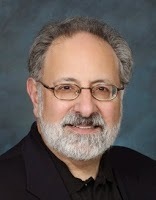 There’s a great moment in the classic film Key Largo, when gangster Edward G. Robinson is asked—given the extent of his wealth and power—what he could possibly still want. “More,” he famously answers.
There’s a great moment in the classic film Key Largo, when gangster Edward G. Robinson is asked—given the extent of his wealth and power—what he could possibly still want. “More,” he famously answers.More. Kind of the American credo in a nutshell, which isn’t as damning as it sounds. The word "more," when appearing before such other words as individual rights, artistic freedom and access to information, stands as a proud element of the Western imperative. On the downside, more has also fueled global climate change, the growing gulf between people’s incomes, and an almost obscene preoccupation with material things. When it comes to life in general, "more" is definitely a two-edged sword.
I’d argue that the same holds true with the craft of writing. More is not always better. In a screenplay, for example, an overwritten patch of description can bring the reader to a screeching halt, draining the narrative of pace and forward momentum.
Find a Therapist
Or take monologues. Unless used sparingly, and with a definite intent, a monologue in a film or TV script can often make the character just seem wordy. (Exceptions abound, of course. Such powerhouse writers as Paddy Chayefsky, Rod Serling and Quentin Tarantino come to mind. And even they occasionally fell prey to mere self-indulgence.)
In a short story or novel, endless words of description—whether of place, a character’s physical appearance, or in the service of the author’s thematic or philosophical interests—can slow the narrative to a crawl.
Overwriting, it’s safe to say, is by general agreement a bad thing. Then why do so many writers do it?
Let’s be clear: I’m not talking about the normal, expected overwriting that characterizes your first draft. During those explosive, flowing, unfolding bursts of creativity, your inner editor is—you hope—asleep at the switch until you get the myriad ideas, incidents, breath-taking narrative leaps and beside-the-point stretches of dialogue down. The first draft is when you do get to describe a character as “grungy, foul-smelling, disheveled, knuckle-dragging and poorly-dressed.” You can even add, “We are repulsed. Taken aback. Aghast. The camera’s eye wants to turn away.” The more socially-conscious might note: “A grim reminder of the dismantling of the welfare system’s safety net in the past thirty years.”
No matter. All that hooey gets edited out in later drafts. Or should. Yet, for some writers, it feels like tearing a piece of their skin away to delete any of it. Why? Is it because they think every word is golden? Hardly. In fact, it’s the reverse.
In my experience with the writer patients in my therapy practice, those who tend to overwrite are usually struggling, whether they know it or not, with issues of self-trust. Either they don’t feel entitled to be writing in the first place and thus need a cornucopia of words to try to mask this, or else they feel unsure of their talent and craft. If the latter is the case, these writers try to convince the reader of the legitimacy of the idea or emotion or scene being depicted by packing it with adjectives, metaphors and authorial asides. Anything—and everything—to make sure the reader gets it.
On the other hand, writers who trust their skills and/or feel entitled to be writing at all have faith in the narrative and emotional power of the single appropriate phrase, the short though vivid description, the seemingly simple line of dialogue freighted with meaningful subtext.
The ancient poet Gensei wrote: “The point of life is to know what’s enough.” That’s the point of writing as well. Not only does self-trust enable writers to shape their work into its most effective, compelling form, but such writing also has enough “air” in it to allow readers to bring their own experiences to what they’re reading (or seeing onscreen), thus increasing the work’s relevancy.
In other words, good writing is what is evoked in the spaces between the written lines. Good writers have enough trust in themselves to know that there’s something there, and that they’ve written enough (but just enough) to convey the thought that sparks the echoing thought in the reader’s mind. They’ve portrayed enough of the character’s emotional life to resonate with similar aspects of the reader’s inner world. A single descriptive word, such as barren or choked or remorseless, can bring with it a wealth of associations to thoughts, feelings and images waiting to be stirred into life in the reader’s imagination.
How do writers develop self-trust? The way we do in most other aspects of life. By doing. Writing. Risking that our readers will follow us where we’re going; that what we have to say, or what we’ve always felt, or what we openly fear or yearn for, will find a recognizable home in the reader’s heart. Self-trust, like it or not, is born of risk. As are most worthwhile things.
Ultimately, if we believe we ourselves are enough, we’ll believe that what we’re writing is enough, too.
Reposted From Hollywood on the Couch

Published on September 15, 2014 00:00
September 9, 2014
Richard Pena's Last Plane Out of Saigon featured in Texas Bar Journal
Published on September 09, 2014 11:55
September 6, 2014
Melanie Neilan Cast in Henry Gamble's Birthday
Published on September 06, 2014 00:00
September 5, 2014
Anonymous was a woman by Fred Shapiro
Your favorite famous quotation: was it by Voltaire? Yogi Berra? Or some woman you’ve never heard of? By Fred Shapiro | "I would venture to guess that Anon,
who wrote so many poems without signing them,
was often a woman."
—Virginia Woolf, A Room of One's Own
Virginia Woolf wrote those words about the entire realm of literary creation, not about that special subset of it called "quotations"—the minting of concise snippets so eloquent or insightful as to be memorable. But those of us who dig deeply for the earliest sources of well-known lines discover, time and again, that here, too, Woolf was right: Anonymous was a woman. Many of the great quotesmiths have been women who are now forgotten or whose wit and wisdom are erroneously credited to more-famous men.
Scholars of sociology, history, psychology, women's studies, and other fields, not to mention writers and thinkers like Woolf herself, have written about why this should be so. I won't seek to tackle that question here. Instead, I present the raw material—or, rather, the fraction of it we know.
The authorship of some of these phrases had been forgotten for years or decades before being unearthed by a researcher. In other cases, the authors were never "lost"—their names have long been known to specialists and can be easily found with a little research—yet they are mostly unknown to the general public. Moreover, the real authors are often obscured by inaccurate attributions that have gained wide currency.
Finally, a few of these lines were crafted by women who are anonymous partly because they worked in professions that tend to be anonymous, such as screenwriting or speechwriting. I've included them nevertheless, because they show the range and depth of well-known quotations by women. The hallmark of almost all these cases, in fact, is that people are surprised to learn that such famous lines were written by such obscure women.
The quotations here are grouped in two categories: the misattributed and the forgotten. Within each category, they are listed chronologically. And after the lists, I offer one more surprise. As it turns out, there have often been anonymous women behind the enterprise of quotation collecting itself—even behind the most iconic male name.
The Misattributed
"He has achieved success who has lived well, laughed often, and loved much; who has enjoyed the trust of pure women, the respect of intelligent men, and the love of little children; who has filled his niche and accomplished his task; who has left the world better than he found it, whether by an improved poppy, a perfect poem, or a rescued soul; who has never lacked appreciation of earth's beauty or failed to express it; who has always looked for the best in others and given them the best he had; whose life was an inspiration; whose memory is a benediction."
This passage is often said to be by Ralph Waldo Emerson or Robert Louis Stevenson. In fact, it was written by Bessie A. Stanley of Lincoln, Kansas, in 1905. She earned $250 as the first-prize winner in a contest sponsored by the magazineModern Women.
The Forgotten
"No time like the present."
This phrase has become so common that many people assume it is a proverb. In the familiar form quoted here, it originated with Mary de la Rivière Manley (1663–1724), an English novelist and playwright, who used it in her 1696 play The Lost Lover.
Read more at Yale Alumni Magazine

who wrote so many poems without signing them,
was often a woman."
—Virginia Woolf, A Room of One's Own
Virginia Woolf wrote those words about the entire realm of literary creation, not about that special subset of it called "quotations"—the minting of concise snippets so eloquent or insightful as to be memorable. But those of us who dig deeply for the earliest sources of well-known lines discover, time and again, that here, too, Woolf was right: Anonymous was a woman. Many of the great quotesmiths have been women who are now forgotten or whose wit and wisdom are erroneously credited to more-famous men.
Scholars of sociology, history, psychology, women's studies, and other fields, not to mention writers and thinkers like Woolf herself, have written about why this should be so. I won't seek to tackle that question here. Instead, I present the raw material—or, rather, the fraction of it we know.
The authorship of some of these phrases had been forgotten for years or decades before being unearthed by a researcher. In other cases, the authors were never "lost"—their names have long been known to specialists and can be easily found with a little research—yet they are mostly unknown to the general public. Moreover, the real authors are often obscured by inaccurate attributions that have gained wide currency.
Finally, a few of these lines were crafted by women who are anonymous partly because they worked in professions that tend to be anonymous, such as screenwriting or speechwriting. I've included them nevertheless, because they show the range and depth of well-known quotations by women. The hallmark of almost all these cases, in fact, is that people are surprised to learn that such famous lines were written by such obscure women.
The quotations here are grouped in two categories: the misattributed and the forgotten. Within each category, they are listed chronologically. And after the lists, I offer one more surprise. As it turns out, there have often been anonymous women behind the enterprise of quotation collecting itself—even behind the most iconic male name.
The Misattributed
"He has achieved success who has lived well, laughed often, and loved much; who has enjoyed the trust of pure women, the respect of intelligent men, and the love of little children; who has filled his niche and accomplished his task; who has left the world better than he found it, whether by an improved poppy, a perfect poem, or a rescued soul; who has never lacked appreciation of earth's beauty or failed to express it; who has always looked for the best in others and given them the best he had; whose life was an inspiration; whose memory is a benediction."
This passage is often said to be by Ralph Waldo Emerson or Robert Louis Stevenson. In fact, it was written by Bessie A. Stanley of Lincoln, Kansas, in 1905. She earned $250 as the first-prize winner in a contest sponsored by the magazineModern Women.
The Forgotten
"No time like the present."
This phrase has become so common that many people assume it is a proverb. In the familiar form quoted here, it originated with Mary de la Rivière Manley (1663–1724), an English novelist and playwright, who used it in her 1696 play The Lost Lover.
Read more at Yale Alumni Magazine

Published on September 05, 2014 00:00







